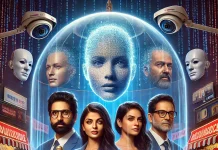INTRODUCTION
Samuel Warren and Louis Brandeis in their ground-breaking article “The Right to Privacy” introduced a fundamental principle as per which an individual shall have full protection in person and in property. They defined Privacy as a principle as old as the common law.
The right to privacy as an independent and distinctive concept originated in the field of Tort law, under which a new cause of action for damages resulting from unlawful invasion of privacy was recognized. The Supreme Court of India while recognising Right to Privacy as a fundamental right in Justice K.S Puttaswamy (Retd.) v. Union of India was of the view that right to privacy is a pre- constitutional right, which has been preserved and recognized by the Constitution of India, not created by it.
However, it has been found necessary from time to time to define de novo the exact nature and degree of such protection. Often the Right to Privacy is viewed in conflict with certain other constitution safeguards: primarily the fundamental right of Freedom of expression. It is the settled position that both the rights are fundamental rights, albeit the former is derived and read into Article 21 authoritatively and conclusively in the Puttaswamy Judgement while the latter is enumerated under Article 19 (1)(a). Consequently, a balance needs to be struck and the boundaries and contours of these two rights is determined, both tentatively and definitively on case-to-case basis.
In line with the above-mentioned issue, often the scope and nature of the right to Privacy is tested through new parameters. A couple of such instances have recently cropped up discussing the right to privacy and the personality/ celebrity right in the posthumous context. The issue of personality rights in posthumous context is also decided through this judgement yet the bench did not define or set an outline for the concept of the personality rights of a celebrity. It is true that Personality rights of an individual is one of the facets of Right to privacy but the same needs to be properly defined by the courts and probably the plea filed by father of Sushant Singh contending the same might formulate jurisprudence on that issue.
Whereas, the issue regarding the right to privacy in the posthumous context has been recently adjudicated by the Madras High Court in the case of Deepa Jayakumar v. A.L. Vijay & Ors., where the division bench ruled that the “posthumous right to privacy is not an alienable one as the right of privacy of an individual”, extinguishes with his or her death and cannot be inherited by a person’s legal heir after his or her death.
Honouring the dead is not a new concept. Societies all across the world have traditions and practices to honour the deceased, but does nullifying the possibility of extending the right of privacy after the death of a person go beyond such practices, especially in the age of technology? All such arguments will be discussed and analysed in context with the recent judgement of the Madras HC in this article.
BACKGROUND
An application was filed by Late AIADMK chief Jayalalithaa’s niece, Deepa Jayakumar, before the Madras High Court, seeking a stay on two in-production projects, allegedly based on the former Tamil Nadu Chief Minister’s life –a film “Thalaivi” and a web series “Queen”.
The Plaintiff sought an interim injunction to restrain Respondents 1 to 3 (Mr. A.L Vijay, Mr. Vishnu Vardhan Induri and Mr. Gowtham Vasudev Menon) from, directly or indirectly, releasing, publishing or exhibiting a film, drama, serial, tele-serial, web serial, etc. in respect of the life of the late Dr. J. Jayalalithaa.
Madras HC held that respondent 1 and 2 had acquired the adaptation rights of the book ‘Thalaivi’ and submitted that the proposed film would address the privacy rights of the applicant as she would not be depicted in a single scene in the film. With respect to Respondent 3, the court noted that the web series is based on the book titled ‘Queen’ which is inspired by true events and the account of the same was made from the information available in the public domain.
The application was dismissed by single judge bench through an order but it made no conclusions on the posthumous privacy rights of Jayalalithaa which made it unclear as to whether there would be inheritance of these rights after the individual’s death. Aggrieved by this order, the applicant filed an appeal before the division bench.
THE DECISION
The following issue arose for consideration in this appeal before the division bench namely:
Whether the posthumous right of the former Chief Minister of Tamil Nadu is inheritable by the appellant to restrain the respondents from releasing the web series or film?”
This issue was left undecided by the order of the single judge bench. Further, this issue had been discussed a lot of time before as well but none of the courts came to the direct conclusion to decide it. In the Gangubai Kathiawadi case, where the purported legal heir of Gangubhai Kathiawadi sought an injunction in a similar matter, the same issue was again left irresolute.
The bench of R.Subbiah J and Sathi Kumar Sukumara Kurup J adjudicated this issue in detail and ruled that the “right of privacy of an individual”, extinguishes with his or her death and cannot be inherited by a person’s legal heir after his or her death. To arrive at this conclusion the court relied upon the Puttaswamy Judgement where it was held that “right to privacy of an individual remains with the being till he/she breathes last. It is born with the human being and extinguishes with human being.”
Further the bench affirmed the approach taken by the Madras High Court in the case of Managing Director, Makkal Tholai Thodarpu Kuzhumam Limited Vs. Mrs.V.Muthulakshmi, wherein the “right of privacy” of the Late forest brigand Veerappan, did not subsist after his death, in view of the undertaking that the “right of privacy” of Veerappan’s wife and daughters, would not be affected. The court in that case categorically rejected the argument regarding inheritability of the “right of privacy”.
For the premise that “right of privacy of an individual” extinguishes with the human being”, reference was made to the apex court’s judgement of Melepurath Sankunni Ezhuthassan Vs. Thekittil Geopalankutty Nair. The aforementioned judgement proposes the notion that privacy or reputation earned by a person during his or her life time, extinguishes with his or her death. After the death of a person, the reputation earned cannot be inherited like a movable or immovable property by his or her legal heirs.
The court settled the long-debated affair by holding that the “Personality, reputation or privacy enjoyed by a person during his/her lifetime comes to an end with his/her death and that a posthumous right is not an alienable one.
Besides from deciding the matter on the notion of posthumous rights, the balance of convenience was in favour of the respondents as both the movie and the web-series were derived from different novels and both of those novels were made from all the material available in the public domain. The plaintiff did not object to those novels earlier. Further, the respondents 1 and 2 submitted that the proposed film would address the privacy rights of the applicant as she would not be depicted in a single scene in the film. Respondent 3, on the other hand assured that the web series was derived from a novel made on true incidents but fictitious elements were added to web series and the series would run with a disclaimer thereby assuring the plaintiff that no harm to reputation will be made either to appellant or the former Chief Minister.
EXAMINING THE EVENTUAL SITUATION
In my humble opinion, the order of the division bench to dismiss the plea for interim injunction was on point as per the present facts and circumstances of the case. The judgement of this court is a landmark judgement in entertainment law as the filmmakers won’t require the consent of the family members of the deceased on whom the film/documentary is being made.
Though, the court while holding that the right of privacy does not exist posthumously, did not emphasize on the need of posthumous right of privacy or right of personality. Privacy and dignity are two separate, but closely interrelated concepts. Privacy is “about the protection of human autonomy and dignity—the right to control the dissemination of information about one’s private life.[i]
In the age of technology, every person has a lot of data stored in one’s computer, storage devices, cloud or even social media accounts. All such stored data is termed as Digital assets of a person. Today, more and more people share personal information on social media platforms such as Facebook, Twitter and even on clouds such as Dropbox. Such data remains on these platforms even after the death of the person. Hence, digital assets provide more information for a longer period of time and therefore raise more privacy concerns after the passing of a person.[ii] While, users have some degree of control over the privacy of their digital assets during their life, this does not does not subsist after the passing away of the person. A dead person can barely provide a limited amount of information about himself but in contrast,
The same information can be used to infringe the privacy of a person or to defame that particular person. This information is used by some and they make profits and earnings thereby flouting the personality rights of a person even after the death of that person. As per the judgement of the court in the Thailavi case the HC has made it amply clear that “after the death of a person, the reputation earned cannot be inherited like a movable or immovable property by his or her legal heirs. Such personality right, reputation or privacy enjoyed by a person during his life time comes to an end after his or her life time”. Though, publicity right is a kind of property that has monetary value attached to it and as a property right, the right of publicity should be inheritable therefore it should be protected by the legal representatives of the dead individual against any unauthorised use even after his or her death, depending on the commercial value attached to it. But after the judgement of the Madras High Court, the afore-mentioned proposition stands nullified.
A close simulation of the same can be seen from the Sushant Singh case, where private information stored as digital assets was leaked and on the basis of which certain filmmakers are vouching and creating scripts for various web series and movies. An application was moved in the Delhi High Court by the late actor’s father against the makers of all the movies made on his son’s life alleging the violation of right to privacy, and “passing off”. The plea seeks to recognise the wilful breach of the fundamental
CONCLUSION
The Madras Hight Court through this order has opened a gateway of opportunities for film makers thereby protecting the freedom of expression since it is a liberty guaranteed through our constitution. Enumerating the importance of the free flow of art and cinema, Article 19 (1) (a) of the Constitution of India is not conditioned/restricted on the premise that a film maker must only portray one particular version of facts. Therefore, there is no obligation on the part of the respondents/defendants to take prior consent from the appellant/plaintiff. Also at the same time, as technology’s importance and requirement in commonplace continues to expand, courts should acknowledge the veracities of modern technology and its bearing on the survival of personal information beyond death when evaluating these cases. There will always arise a need to reanalyse the nature and degree of protection for privacy and its close but conflicting tune with the freedom of expression.
The ruling of this order will have great significance in developing Indian jurisprudence towards the personality rights in post mortem context when the Delhi High Court decides the Sushant Singh Case for interim injunction against movie makers.
References:
[i] N. A. Moreham, Why is Privacy Important? Privacy, Dignity and Development of the New Zealand Breach of Privacy Tort, in LAW, LIBERTY, LEGISLATION 231–248 (Jeremy Finn & Stephen Todd, eds., 2008), available at http://www.victoria.ac.nz/law/about/staff/publications-nicole-moreham/nm-law-libertylegislation.pdf.
[ii] Gerry W. Beyer & Naomi Cahn, When You Pass On, Don’t Leave the Passwords Behind: Planning for Digital Assets, PROB. & PROP. MAG. (Jan./Feb. 2012).
[iii] ETW Corp. v. Jireh Publ’g, Inc., 332 F.3d 915, 935 (6th Cir. 2003).
Image source: here












![MADRAS HIGH COURT REFUSES TO STAY RELEASE OF ALLEGED BIOPIC ON JAYALALITHA ‘QUEEN’ AND ‘THALAIVI’ [READ ORDER]](https://iprmentlaw.com/wp-content/uploads/2019/11/Screenshot-2019-11-02-at-3.23.41-PM-100x70.png)
Comments are closed.